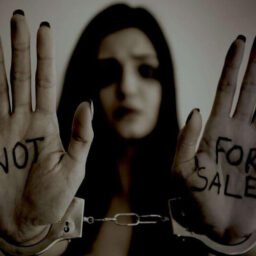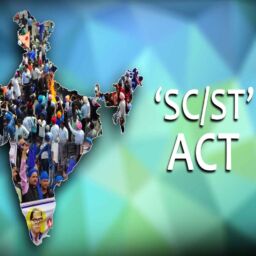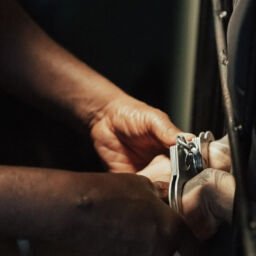INTRODUCTION
Childhood is a very sensitive phase of life. It knows no concerns or tensions and not even the good or bad. It is the time of complete innocence. But sometimes without realising this very fact, people misuse them to a degree that their future is demolished until the end of time. A child is a person whose age ranges between 0-18 years i.e., till he becomes an adult. Legally According to UNCRC (United Nations Convention on Rights of Child) 1989 “a child is anyone under 18 until and unless the law applies to him or her.[1]
The term sexual violence is generally used to denote any sort of sexual gestured act or activity, comprising sexual abuse, assault, rape etc.
Particularly considering children a child sexual violence is of sexual nature which can comprise of:
- Child exploitation
- Having a sexual relationship with the child
- Rape
- False treatment of a children
- Taking care in a sexual manner
- Taking or having a sexual photograph of a child
- Making them touch any sexual body part
The above-mentioned crimes can take place between relative’s friends’ family and even partners.
WHY LAWS ARE NEEDED FOR SEXUAL VIOLENCE AGAINST CHILDREN?
The harsh reality of society is every year millions of children around the globe face this issue i.e., sexual violence, and exploitation. It can happen at any place at any time whether it is school, home relatives place anywhere. Frequently it takes place relating to someone a child is known of and trust that person. We unquestionably need severe laws to secure our young ones and keep such individuals from grabbing their vivid adolescence and leaving them in haziness. The innocent victims of these wrongdoings for the most part are threatened and abused. While the protected and legal structure has guaranteed lawful and political rights, substantially more should be done to guarantee social rights to weak networks. Lawful change alone couldn’t acquire a change in the rights of juveniles.[2]
LAWS FOR SEXUAL VIOLENCE AGAINST CHILDREN IN INDIA
- To criminalise such cases i.e, rape, harassment, exploitation, violence, or pornography there has been the establishment of a department named Protection Of Children Against Sexual Offence (POCSO)2012[3]
- The law sets out the systems for reporting sexual crimes against children. Under Section 19 of the Act, it is compulsory to report sexual crimes against children, including when there is a dread that an offence under the Act has been perpetrated. This child protection law is likewise extraordinary because it puts the weight of confirmation on charges, following ‘guilty until proven innocent not at all like the IPC.
- The POCSO Act was authorised in 2012 and is unbiased it perceives that boys can be survivors of sexual brutality too. It characterises a child as somebody younger than 18 years of age. The Indian Penal Code doesn’t perceive that rape can happen to boys.
- Under arrangements of the POCSO Act, a child is having to go through the following procedure: Getting their assertion recorded at their home or a position of their decision, and ideally by a lady police official or an authority not beneath the sub-inspector rank, in civilian clothes.
- The police in charge ought to guarantee that during the investigation process, the youngster shouldn’t interact with the charged.
- The child cannot be kept at the police headquarters around evening time, and his/her personality ought to be shielded from people in general and media except if coordinated in any case by a Special Court.
- If the victim is a girl, the clinical assessment ought to be finished by a lady specialist, and the assessment must be done within the sight of a parent, or an individual the youngster trusts. Assuming neither one nor the other are there, the assessment ought to be done within the sight of women nominated by the head of the medical institution.
PREVENTION
- Be engaged with your child’s life: Being effectively engaged with a youngster’s life can make cautioning indications of kid sexual maltreatment more self-evident and help the kid feel more open to coming to you in case something isn’t right. On the off chance that you see or hear something that causes concern, you can make a move to secure your kid.
- Get to know the individuals in your child’s life: Know whom he/she is investing energy with, including different kids and grown-ups. Get some information about the children they go to class with, the guardians of their companions, and others they might experience, like partners or mentors. Talk about these individuals straightforwardly and pose inquiries so your kid can feel open to doing likewise.
- Pick guardians cautiously: Regardless of whether it’s a sitter, another school, or anything sorts of, be diligent about evaluating parental figures for your youngster.
- Realise the admonition signs: Come out as comfortable with the indications of child sexual maltreatment, and notice any progressions with your youngster, regardless of how little they might be. Regardless of whether it’s occurring to your youngster or a kid you know, you can have a major effect on such an individual’s life.
- Urge youngsters to share: When somebody realises that their voice will be heard and viewed seriously, it gives them the boldness to shout out when something isn’t right. You can begin having these discussions with your kids when they start utilising words to discuss sentiments or feelings. It is never too late to start such conversations.
- Make sure your child understands limitations: Tell your youngster that nobody has the option to contact them or cause them to feel awkward and their body is their own. Similarly, as critically, remind your youngster that they don’t reserve the privilege to touch another person if that individual would not like to be contacted.
- Be accessible to your child: Put time to the side to go through with your child’s life. Tell them that they can come to you anytime when they have questions or then again in case somebody is conversing with them in a manner that causes them to feel awkward. On the off chance that they do come to you with questions or concerns, finish your statement and make an opportunity to talk.
- Adhere to them that they are innocent: Numerous culprits use threats as a method of keeping youngsters quiet regarding misuse. Remind your youngster habitually that they won’t stumble into difficulty for conversing with you, regardless they need to say.[4]
In case if your child is abused in any manner make sure you do the following:
- To uphold the kid and clarify that he/she isn’t answerable for what occurred.
- Do accept the kid: Be sympathetic, understanding, and strong. Do counsel a specialist and think about the requirement for advising or treatment for the kid.
- Don’t freeze or blow up. With your assistance and backing, the youngster can endure this troublesome time.
- Don’t cause the kid to feel regretful about the maltreatment. Report the crime with the police and guarantee that the maltreatment stops right away. Your first obligation is to the kid – to secure him/her and to guarantee that there will be no more breach of privacy.
CONCLUSION
Any type of dissimilarity or brutality against youngsters is an appalling demonstration of child abuse. No human, not even the guardian of the kid has the option to abuse the juvenile in any capacity. Regardless of whether it is a slap. The faltering reasons for beating the young one’s are invalid in the current situation. We, individuals of the present reality need to stand firm against any sort of child misuse. Regardless of whether it is mental, physical, or sexual, each misuse is averse to the development of a youngster along these lines unsuitable. Community, as well as the children themselves, have to stand against this social evil and together make a difference. It’s time to raise a voice against unacceptable crimes. The attention to the rights and wrongs done to kids ought to be an exercise given to them at an early age. Moreover, severe moves ought to be made against individuals who engage in these crimes.[5]
Author(s) Name: Kratika Pachouri (Bennett University, Greater Noida)
References:
[1] ‘The Convention on The Rights of The Child: The Children’S Version’ (Unicef.org, 2021) <https://www.unicef.org/child-rights-convention/convention-text-childrens-version> accessed 7 August 2021.
[2] ‘Sexual Violence Against Children’ (Unicef.org, 2021) <https://www.unicef.org/protection/sexual-violence-against-children> accessed 7 August 2021.
[3]Geetika Mantri, ‘What Is the POCSO Act and How Is It Used: A Guide’ (The News Minute, 2021) <https://www.thenewsminute.com/article/what-pocso-act-and-how-it-used-guide-143310> accessed 7 August 2021.
[4] ‘How Can I Protect My Child from Sexual Assault? | RAINN’ (Rainn.org, 2021) <https://www.rainn.org/articles/how-can-i-protect-my-child-sexual-assault> accessed 7 August 2021.
[5] (Nhrc.nic.in, 2021) <http://nhrc.nic.in/sites/default/files/MedGuideChild.pdf> accessed 7 August 2021.
















